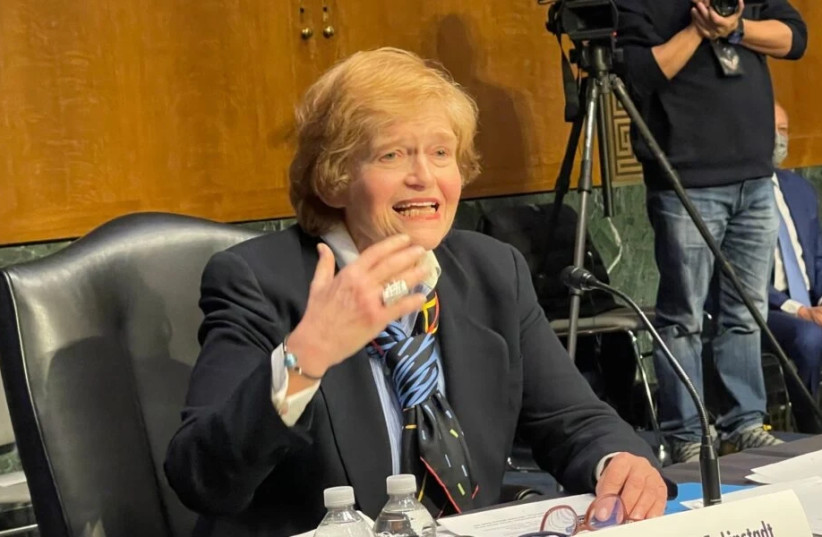When I was a young boy, I remember hearing that Saudi Arabia was a leader in the boycott against Israel. Companies wouldn’t do business with Israel because it would hurt their business with the Saudis, so our community would refrain from supporting those companies. As a result, Saudi Arabia was known as a leading antisemitic nation.
Fast forward more years than I prefer to admit, and I found myself invited on a mission of Jewish businesspeople to Bahrain and... Saudi Arabia. Given all of the preconceived notions I had been raised with, I had no idea what to expect.
On that trip several weeks ago, I was absolutely amazed by my encounters. I met leaders in business and politics, who were open to Jewish history, getting to know Jews and even what remains – for now – known in their country as the “Zionist regime.”
I sat next to someone at dinner, who started talking to me about Israeli history and said he had watched Abba Eban’s documentary series. He then asked about the Spanish Inquisition. I was consistently surprised by the amount of knowledge there was about Jews, Judaism and Israel, as well as an openness to normalizing relations, and yes, even peace.
White House Special Envoy for Combatting Antisemitism Deborah Lipstadt recently arrived in Israel, following her own visit to Saudi Arabia. Unlike my mission of business networking and steps to get to know one another, Lipstadt explained that the purpose of her visit was clear to everyone: to specifically talk about Jew-hatred.

While discussing contemporary antisemitism at a recent US Embassy event, she explained that “the situation has changed dramatically, in the past few years, and that the younger generation is quite clearly open to separating geopolitics from antisemitism.” This shift happened due to the country’s leadership.
What was most apparent from this unusual trip – and has become increasingly more apparent throughout the years – is that the drive for bold change of this kind must come from the top. The president of the United States, the prime minister of Israel, and the leaders of Middle Eastern countries need to be more than invested, they need the courage and conviction to persuade their own people that this is the right move at the right time.
Highlights of the trip
THE TRIP also highlighted, for me, the essential element of American participation if any peace is to be brokered in the Middle East today. While the world understands that America values peace, and has led the world in peace efforts, there is more to it than that. America’s relationship with each country in the region and its positions on Israel make it an integral part of any peace that can be brokered right now. The fact is America must have that seat at the table.
President Joe Biden’s trip, therefore, sends a critical signal to the world. Many of us remember the effect of former president Barack Obama’s Middle East trip at the beginning of his administration, when he visited Egypt but skipped Israel. Even though apologies were made, many in Israel and the US still took it as a slight against Israel, America’s strongest democratic ally in the Middle East.
Biden is scheduled to spend four days in the Middle East, this coming week. His trip will include meetings with Israel and the Palestinian Authority, followed by a visit to Jeddah, Saudi Arabia, for meetings with Saudi leadership. He will also attend a GCC+3 summit – comprised of Gulf Cooperation Council leaders, who will be joined by the leaders of Egypt, Jordan and Iraq.
With this physically challenging itinerary alone, the president is painting a very clear picture: Israel and some of her neighbors have common strategic interests with the US and with each other. The power of this message, in word and deed, cannot be underestimated.
We live in a world that has become extraordinarily partisan. This trip has already elicited a great deal of criticism from both sides of the political aisle. Those on the Left are criticizing Biden for agreeing to meet with the Saudi crown prince because of the country’s human rights abuses, while those on the right are calling him a hypocrite.
I wish to publicly thank the president. A true leader knows they are making a choice that is both brave and correct when the ensuing criticism comes at them from both sides. Biden demonstrates strong leadership by combining his visits to these two countries into one trip, with the conviction and fortitude to continue the pursuit of a successful peace process started by another administration.
Establishing a relationship between Saudi Arabia and Israel serves the interests of both peoples, as well as the interests of a stable Middle East in general and, ultimately, the interests of the United States. It will also serve the best and long-term interests of the Palestinian people.
We look forward to the positive ramifications of this significant visit.
The writer, a rabbi, is CEO of Aish and a member of the Jewish Agency’s Board of Governors as a representative of the World Zionist Organization.
